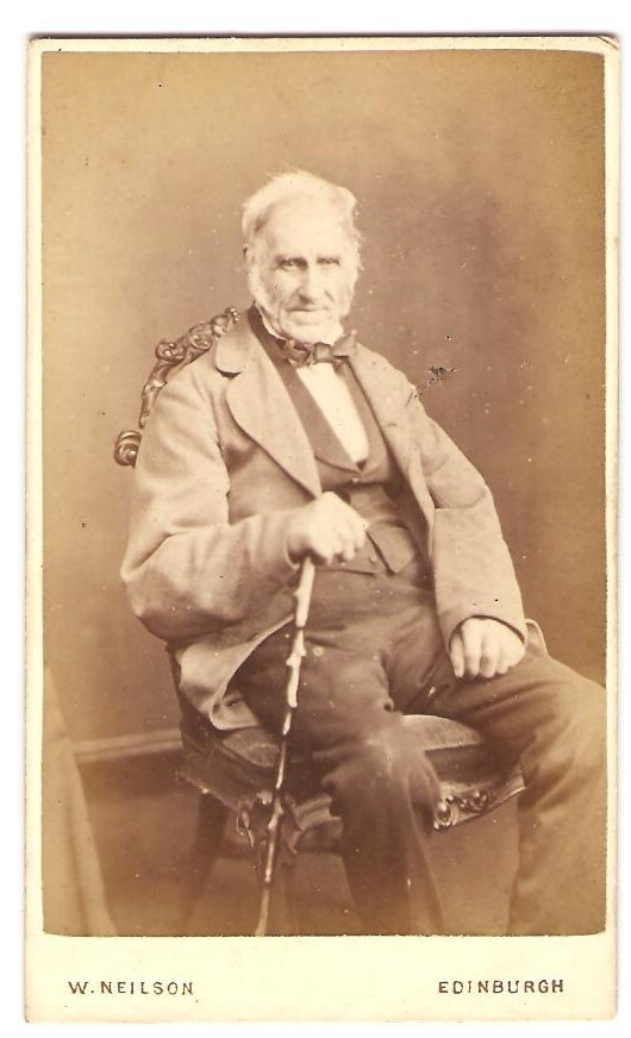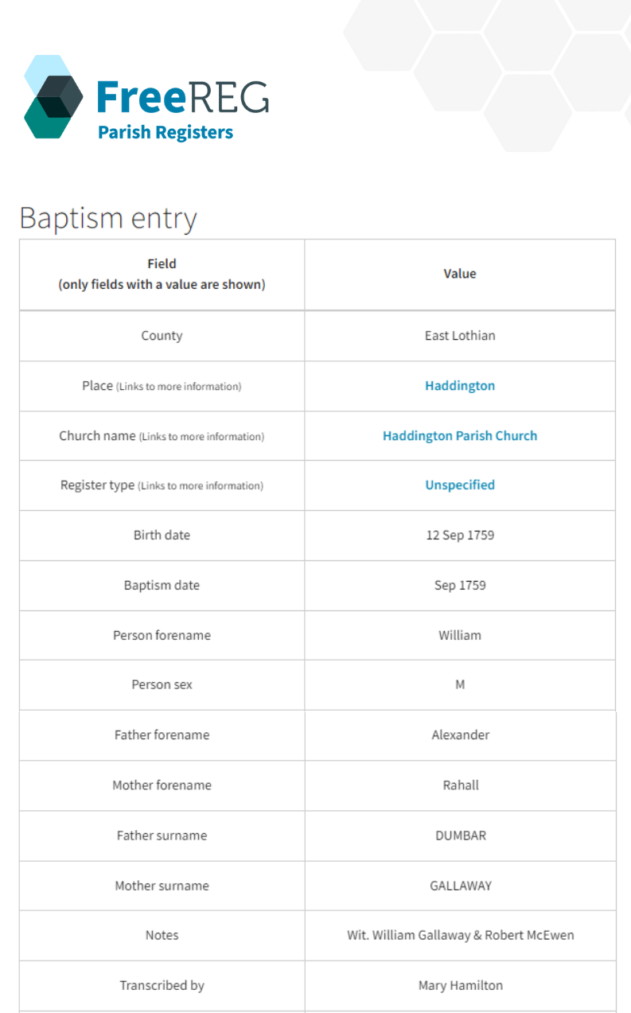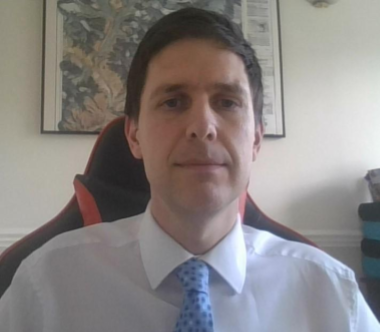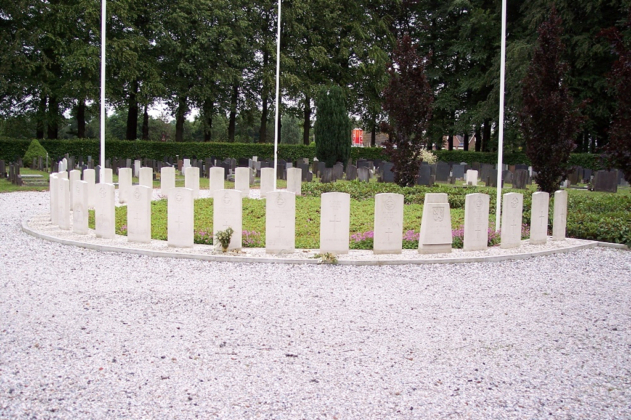What's in a name?
Anna Wilson is a Free UK Genealogy volunteer and PHAROS student.
Here, she shares with us an example of how FreeREG helped her track down the baptism record of her four-times great grandfather, William Dunbar.
I have been researching my family history since 2004 after discovering three Victorian photograph albums in a dark corner of my parent's attic. It's a large attic and was full of ‘stuff’ so these albums had been left untouched for years. My father stated that he had never seen them before even though the house had been his family home since the 1960s.
The photograph albums led to the discovery that my paternal great-grandparents were Scottish and offered me the opportunity to delve into the amazing records available at ScotlandsPeople.
This was until I came across the name of my four times great grandfather William Dunbar. I easily found trees online which included William and a baptism record for him on the 14th April 1754 in Whittinghame, East Lothian. The actual baptism record detailed the name of his father Alexander Dunbar and his mother Helen Pringle, and I happily continued to work on my tree entering in the details of his marriage and children.
I tend to bulk the wish list of records I want to purchase with credit at ScotlandsPeople as it keeps me on a focused path rather than straying into looking at ‘potential’ records and using up all my credit. So it was months later that I obtained a copy of Peter Taylor’s will, my three times great grandfather, who had been married to Ratchel Dunbar, William’s daughter.

Peter Taylor, family photograph
Peter Taylor’s will was a gem of a genealogical document for both the Taylor and Dunbar families. It referred to land that Ratchel had inherited from her father, which had belonged to William Dunbar’s mother… Ratchel Galloway. This was an unfamiliar name: where was Helen Pringle? I revisited the records I had about William. His marriage to Catherine Patterson was in 1785 in Haddington, East Lothian. Their marriage occurred before the introduction of Civil Registration in Scotland in 1855 and so I was reliant on the Old Parish Registers of marriage. The entry stated that they had been irregularly married in Edinburgh – perhaps more information would be in the Kirk Session Records but residing in Somerset a visit to the National Records of Scotland (NRS) would not be happening any time soon.
So, I searched ScotlandsPeople again changing dates, names, and locations with the same three results but none relating to William Dunbar the son of Alexander Dunbar and Ratchel Galloway.
By 2018 I had been trying to search for William Dunbar’s correct baptism for 2 years. I discovered that FreeREG had great coverage of baptisms, marriages and burials for the East Lothian area. I decided to use their search engine, making sure I used the Soundex facility. In less than a minute, bingo: there he was William Dumbar, baptised in the September of 1759 in Haddington, East Lothian just below the other William Dunbar baptised 1754 in Whittinghame, East Lothian. Clicking on the entry his father was Alexander Dunbar and his mother was transcribed as Rahall Gallaway, with William Gallaway as a witness.

So why could I not find the original image on ScotlandsPeople?
I went back to ScotlandsPeople and searched using ‘Rahall Galloway’ as William’s parent and used phonetic and wildcard searches to match the transcription of the baptism entry and there it was in the search results. It recorded William Dumbar’s parents as Alexander Dumbar and Rachall Galloway and I was able to purchase the correct baptism for my William Dunbar – leading to a different family to that of Alexander Dunbar and Helen Pringle.
So, some valuable lessons learnt along the way:
- Always verify the information and sources from online trees,
- Never give up on brick walls,
- Find as many records relating to an ancestor as possible,
- Use as many search facilities as possible to find them,
- Always use phonetic and wildcard searches on different websites
- If FreeREG covers your area of interest in Scotland it is a great resource to identify names that have been mistranscribed as well as assist in narrowing down the relevant individual before you spend your credit at ScotlandsPeople.
I wish I had found FreeREG sooner!

